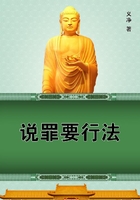There seems to be in the sphere of honour also, as was said in our first remarks on the subject, a virtue which would appear to be related to pride as liberality is to magnificence. For neither of these has anything to do with the grand scale, but both dispose us as is right with regard to middling and unimportant objects; as in getting and giving of wealth there is a mean and an excess and defect, so too honour may be desired more than is right, or less, or from the right sources and in the right way. We blame both the ambitious man as am at honour more than is right and from wrong sources, and the unambitious man as not willing to be honoured even for noble reasons. But sometimes we praise the ambitious man as being manly and a lover of what is noble, and the unambitious man as being moderate and self-controlled, as we said in our first treatment of the subject. Evidently, since 'fond of such and such an object' has more than one meaning, we do not assign the term 'ambition' or 'love of honour' always to the same thing, but when we praise the quality we think of the man who loves honour more than most people, and when we blame it we think of him who loves it more than is right. The mean being without a name, the extremes seem to dispute for its place as though that were vacant by default. But where there is excess and defect, there is also an intermediate; now men desire honour both more than they should and less; therefore it is possible also to do so as one should; at all events this is the state of character that is praised, being an unnamed mean in respect of honour. Relatively to ambition it seems to be unambitiousness, and relatively to unambitiousness it seems to be ambition, while relatively to both severally it seems in a sense to be both together. This appears to be true of the other virtues also. But in this case the extremes seem to be contradictories because the mean has not received a name.
5
Good temper is a mean with respect to anger; the middle state being unnamed, and the extremes almost without a name as well, we place good temper in the middle position, though it inclines towards the deficiency, which is without a name. The excess might called a sort of 'irascibility'. For the passion is anger, while its causes are many and diverse.
The man who is angry at the right things and with the right people, and, further, as he ought, when he ought, and as long as he ought, is praised. This will be the good-tempered man, then, since good temper is praised. For the good-tempered man tends to be unperturbed and not to be led by passion, but to be angry in the manner, at the things, and for the length of time, that the rule dictates; but he is thought to err rather in the direction of deficiency; for the good-tempered man is not revengeful, but rather tends to make allowances.
The deficiency, whether it is a sort of 'inirascibility' or whatever it is, is blamed. For those who are not angry at the things they should be angry at are thought to be fools, and so are those who are not angry in the right way, at the right time, or with the right persons; for such a man is thought not to feel things nor to be pained by them, and, since he does not get angry, he is thought unlikely to defend himself; and to endure being insulted and put up with insult to one's friends is slavish.
The excess can be manifested in all the points that have been named (for one can be angry with the wrong persons, at the wrong things, more than is right, too quickly, or too long); yet all are not found in the same person. Indeed they could not; for evil destroys even itself, and if it is complete becomes unbearable. Now hot-tempered people get angry quickly and with the wrong persons and at the wrong things and more than is right, but their anger ceases quickly-which is the best point about them. This happens to them because they do not restrain their anger but retaliate openly owing to their quickness of temper, and then their anger ceases. By reason of excess choleric people are quick-tempered and ready to be angry with everything and on every occasion; whence their name. Sulky people are hard to appease, and retain their anger long; for they repress their passion. But it ceases when they retaliate; for revenge relieves them of their anger, producing in them pleasure instead of pain. If this does not happen they retain their burden; for owing to its not being obvious no one even reasons with them, and to digest one's anger in oneself takes time. Such people are most troublesome to themselves and to their dearest friends. We call had-tempered those who are angry at the wrong things, more than is right, and longer, and cannot be appeased until they inflict vengeance or punishment.
To good temper we oppose the excess rather than the defect; for not only is it commoner since revenge is the more human), but bad-tempered people are worse to live with.
What we have said in our earlier treatment of the subject is plain also from what we are now saying; viz. that it is not easy to define how, with whom, at what, and how long one should be angry, and at what point right action ceases and wrong begins. For the man who strays a little from the path, either towards the more or towards the less, is not blamed; since sometimes we praise those who exhibit the deficiency, and call them good-tempered, and sometimes we call angry people manly, as being capable of ruling. How far, therefore, and how a man must stray before he becomes blameworthy, it is not easy to state in words; for the decision depends on the particular facts and on perception. But so much at least is plain, that the middle state is praiseworthy- that in virtue of which we are angry with the right people, at the right things, in the right way, and so on, while the excesses and defects are blameworthy- slightly so if they are present in a low degree, more if in a higher degree, and very much if in a high degree. Evidently, then, we must cling to the middle state.- Enough of the states relative to anger.
6















